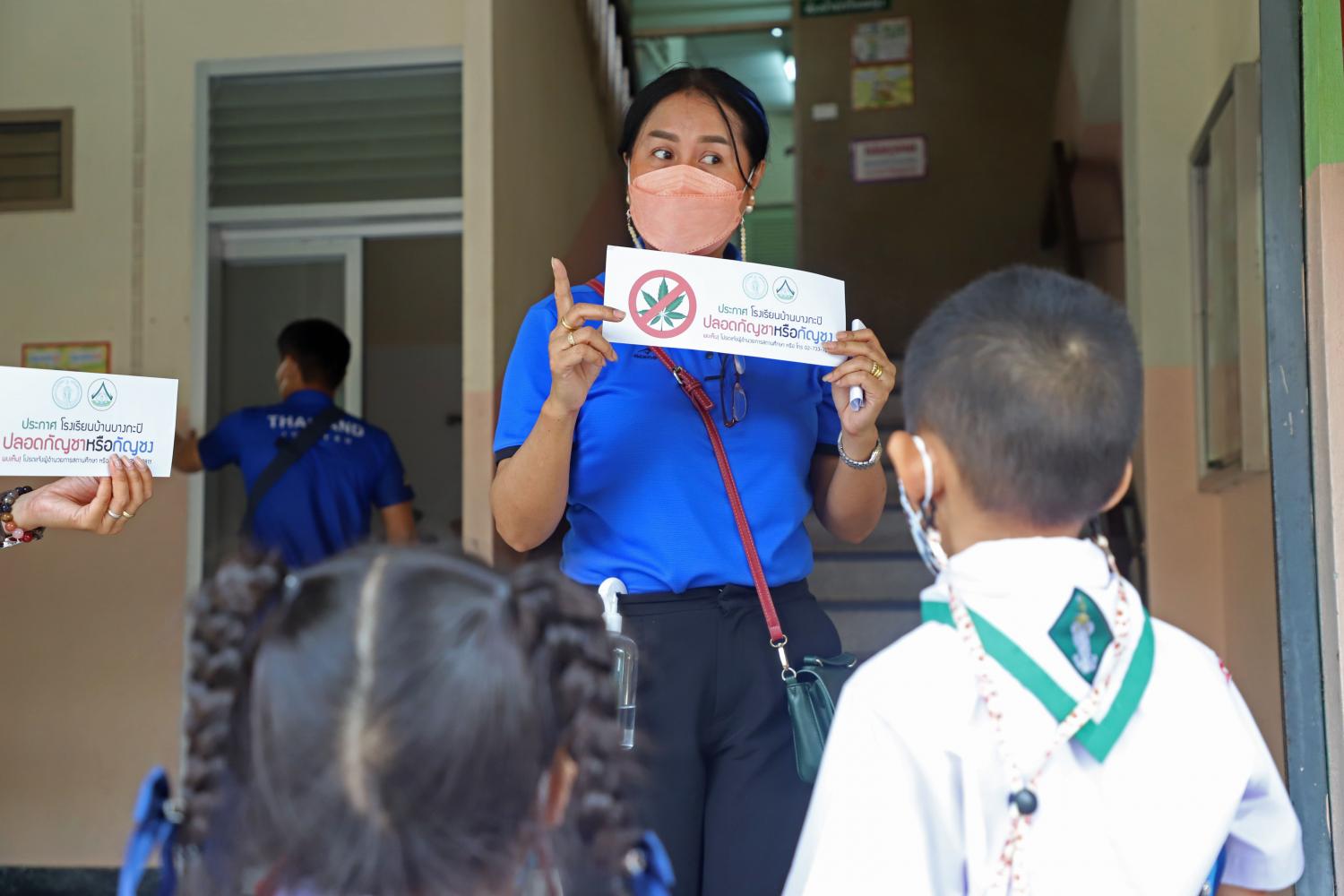
When my father asked me if I had plans on a Sunday evening several months ago, I expected it was going to be his standard way of ensuring we would have dinner together, something we both cherish. When he instead said, somewhat hesitatingly, "So, how about if we smoke pot together?" I thought he was joking. I looked around, fully expecting a camera crew to pop out of our apartment's shadows to capture the shocked expression plastered on my face. "MY father?" I thought to myself, "The man who is supposed to protect me from the world's darkest influences and offerings is saying that he wants to smoke pot with me, his 16-year-old son?"
His sudden offer to introduce me to pot didn't come from nowhere. The explosion of dispensaries all over Bangkok -- with the number of cannabis shops rivalling the number of 7/11s -- was hard to ignore. These small independent businesses popped up after Covid restrictions had relaxed, and the availability of marijuana sprouted quickly like, well, weeds. The six-pronged green leaf has become arguably the biggest tourist attraction in the Land of Smiles since Thailand is currently the only country in Asia to decriminalise marijuana. This policy change has captured the minds of virtually everyone living in the country: politicians who have made it a campaign theme, public health policymakers who are wrestling with how to educate the public on this now legal substance, and, most importantly, many potential new users -- including many teenagers (like me) who are at our peak of curiosity and experimentation.
For that reason, when I asked my father why he wanted to smoke pot with me, he decisively stated, "I don't have a choice." He felt that if he didn't introduce me to marijuana, someone else would -- and soon. Unquestionably, he was right. Friends were talking about it, and I had already seen people on the street smoking it, as if it had been legal for years. My father wanted me to try it safely in a controlled environment under his guidance. These days cannabis can be laced with a deadly filler like fentanyl, but taking too much of it at once can also be dangerous since some joints and edibles have varying levels of the psychoactive substance tetrahydrocannabinol (THC), which affects people differently.
What was ironic was that my dad isn't even a pot user and is not a fan of the altered state of mind. Even though he has always been very open with me on a myriad of controversial ideas -- conversations about drugs, sex, and politics are common topics at our dinner table -- his offering to try pot with me was a big step, even for him.
But dear reader, this is not about cannabis use. I am certainly not advocating that every parent should sit down with their son or daughter and experience cannabis with them. What I have learned is the importance for parents to create an environment where their kids feel comfortable talking to them about drug use and for parents to initiate the discussion in a supportive and open way. A relaxed environment where a teenager can ask questions without his or her parent getting angry will in turn make that teenager more honest and open about sensitive issues like drug use -- and that will go a long way in keeping the lines of communication open so that risks can be discussed.
It's difficult for scientists to prove the impact of parental communication on influencing their teen's marijuana use since there are so many factors involved and different types of people. But the research that has been conducted seems to show that it's worthwhile to talk to a teen about drug use. A much cited research paper titled "The Effectiveness of Family Interventions in Preventing Adolescent Illicit Drug Use" published in Clinical Child and Family Psychology Review in 2015 show improved parent-child communication is likely to be effective in reducing adolescent marijuana use.
This communication is even more important since the potential use of cannabis for teens comes right at the same time when they are learning to drive. With the legal age to drive motorbikes in Thailand at 15, and cars at 18, this new phenomenon of teens driving under the influence of pot has yet to be dealt with in Thailand. While the Ministry of Public Health discourages driving following the use of cannabis, there are still no laws like those that criminalise drunk driving even though evidence is clear that cannabis affects hand-eye coordination and slows down a driver's response on the road.
Whether smoked or eaten as brownies or gummies, cannabis is already joining alcohol and e-cigarettes in Thailand as a readily available substance for teenagers to try as they enter adulthood and independence. Parents can either engage with their kids on this bumpy journey and help them make smart decisions or take the easy road and ignore it. The science is clear that the risks are great if parents brush aside this vital discussion about drugs with their kids. Teenagers are left to their peers and social media where information is biased in favour of experimentation and the positive effects of cannabis over a more frank and balanced assessment of the risks. Parenting style can either contribute to or prevent the misuse of substances. The worst-case implication of closing the door on discussing drugs with teenagers is that if they do get into trouble with drugs -- an overdose, a run-in with the police, or violence -- they may decide not to seek help from their parents because the topic was always avoided at home or felt to be awkward or taboo. Avoidance has its price.
Zachary Quang Mills is a Year 12 student at an international school in Bangkok, Thailand.